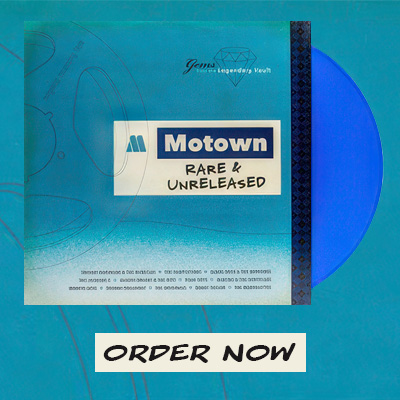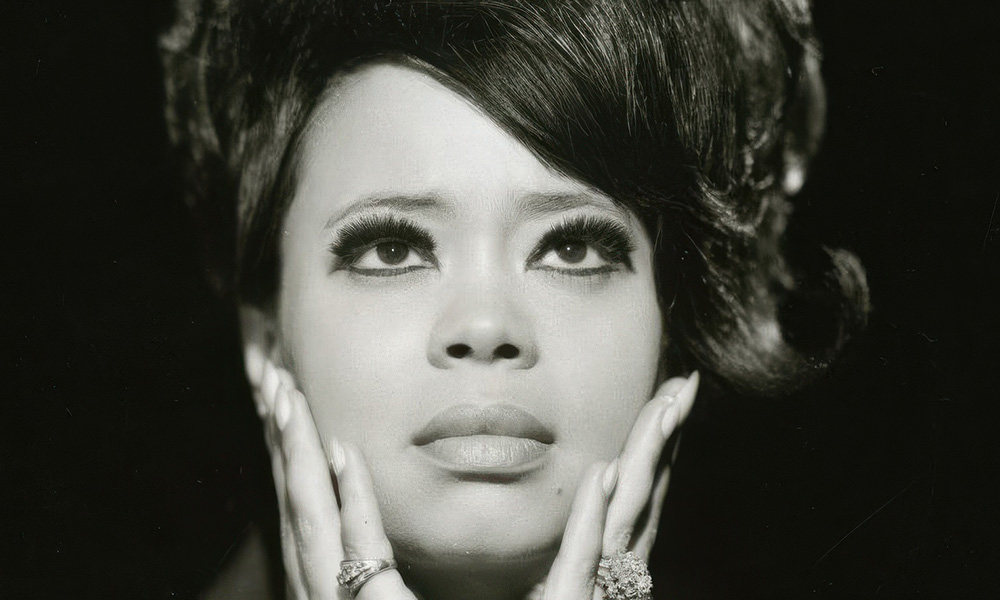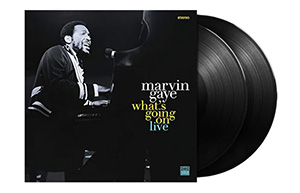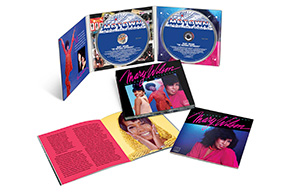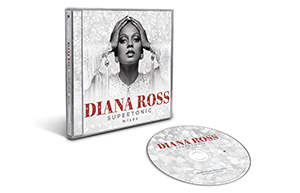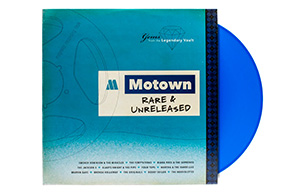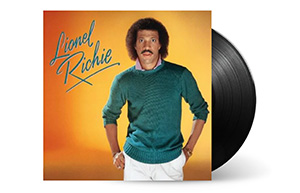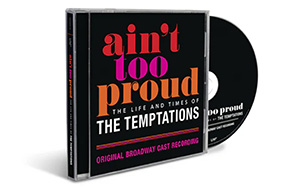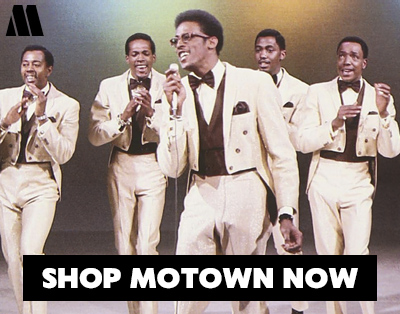Yvonne Fair
A tireless and provocative live performer whose fascinating and varied career included singing in a classic “girl group,” touring with and recording for James Brown, a film role in Lady Sings The Blues, a mentoring role for the Commodores, and a pile of unfortunately overlooked music, Yvonne Fair’s arresting vocal talent commercially crests with her biggest – and lone – U.K. hit “It Should Have Been Me,” earning some long-overdue recognition in 1975.
FAST FACTS:
- First Hit: “Funky Music Sho Nuff Turns Me On”
- Biggest Hit: Biggest U.S. Hit – “Funky Music Sho’ Nuff Turns Me On;” Biggest U.K. Hit – “It Should Have Been Me.”
- Biggest Album: The Bitch Is Black
- Career Highlight: Fair’s rendition of “It Should Have Been Me” explodes to the Top 5 in the U.K., where fans continue to revere her work.
With an impressive range that bridged rock and R&B and effortlessly leaps from soft, smoldering passion to growling blues belting, Yvonne Fair’s records show the strong influence of Etta James, her idol, whose commercial success she unfortunately could not duplicate. Born in Richmond, VA, in 1942, but raised in New York City’s borough, The Bronx, Flora Yvonne Coleman dislikes her first name and prefers her middle name, which she pronounces “yuh-von.”
She begins her career as Yvonne Harris, then takes her first husband’s name, Fair. In 1961, she joins the Chantels in time to sing on that pioneering girl group’s second biggest chart hit (after 1957’s “Maybe”), “Look In My Eyes.”
Fair leaves the Chantels to tour with the James Brown Revue (although later in the Sixties, she will periodically fill in with the Chantels). Her stint with Brown yields three singles in 1962 with James producing and his band providing accompaniment. Among these is “I Found You,” recorded in early ’62, which Brown will rework a couple of times, eventually resulting in one of his most famous songs, “I Feel Good (I Got You).”
Following some time away to focus on herself and her two children, Fair returns to show business in the mid-1960s, joining R&B star Chuck Jackson, who she’d met while working for Brown. Jackson gives her a solo spot on his revue and they sing duets. She becomes a crowd favorite for her strong singing and dynamic – and sometimes outrageously risqué — stage charisma.
When Jackson leaves Wand Records and signs with Motown in 1967, he asks them to also sign Yvonne. Since Motown’s execs are very familiar with Fair from seeing her perform at Jackson’s regularly sold-out engagements at Detroit’s 20 Grand Club, she too becomes a Motown artist.
Yvonne’s stage presence makes her an ideal opening act for many of Motown’s touring artists over the course of her tenure with the label and she works regularly on stage.
In the studio, Motown’s production staff is in transition when Fair comes to Hitsville, with Holland, Dozier and Holland soon to exit. Yvonne begins working with Harvey Fuqua and Johnny Bristol and in late 1967, they produce Jackson and Fair on a roaring duet, “It Must Be Love Baby.” Like all of what Fair records over the next few years, the track remains unreleased, although this duet surfaces in 2002 on the various artists CD compilation of previously unreleased material, A Cellarful Of Motown!
Jackson and Fair record another duet in 1968, “We Should Never Be Lonely My Love.” She also records a solo outing, “I Will Still Be Around.” Both stay in the vault until 2018, when they are part of the Unreleased Motown 1968 compilation. Most surprisingly, her 1968 recording of “I Can’t Let Him Go” inexplicably also remains in the can despite a strong Johnny Bristol-Edwin Starr lyric, Bristol’s top-notch production and Yvonne’s terrific performance. It finally sees daylight in 2007 on A Cellarful Of Motown! Volume 3.
After recording perhaps an album’s worth of unreleased material, Fair finally gets her first Motown single release in 1970 on the Soul label, a soulful Fuqua-produced ballad “Stay Just A Little Bit Longer.” The B-side is a solo version of “We Should Never Be Lonely,” Fair recutting her vocals and joined by the minimalist accompaniment of producer Bristol in the same off-mic style he used with Diana Ross on “Someday We’ll Be Together.” Neither side makes an impact on the charts, although the A-side will be included on the popular 1973 UK compilation LP The Motown Sound Volume 1.
Motown asks Fair to be the opening act for the Jackson 5 summer tours in 1971 and 1972. She auditions, hires and mentors a backing band from Tuskegee University, the Commodores, for the tour, paving the way for them to sign with Motown. On the tour, she encourages Commodores’ sax man Lionel Richie to sing duets with her, altering Richie’s career path.
Fair gets a small speaking/singing part in the 1972 Motown film starting Diana Ross, Lady Sings The Blues. Playing a saucy nightclub singer named “Yvonne,” she banters on screen and sings the song “Shuffle Blues.” It is not included on the bestselling soundtrack LP for the film.
With Norman Whitfield producing, Yvonne gets her next release in May 1974 on the Motown label. Her sassy lead vocal interplays with an uncredited Marvin Gaye to cover Edwin Starr’s hit “Funky Music Sho’ Nuff Turns Me On.” The strong rhythmic track becomes her first and biggest U.S. chart hit, peaking at Number 32 on the R&B chart, although the record’s quality deserves far better.
The funky Whitfield-penned and -produced “Walk Out The Door If You Wanna,” which starts off with Norman himself in a lover’s spat with Yvonne, is released as the follow-up to “Funky Music” in September. It reaches Number 60 on the R&B chart. On the flip-side is Yvonne’s raging cover of “It Should Have Been Me,” previously a B-side for Kim Weston 1963 debut single and later a 1968 hit for Gladys Knight and the Pips.
A Pam Sawyer-Gloria Jones ballad “It’s Bad For Me To See You” is selected for an April ’75 release as Fair’s next single. It is does not chart and a month later, Motown releases another single, Whitfield’s rocking “Love Ain’t No Toy,” which includes shout-outs to Shirley Brown and Barbara Mason for their recent hit songs “Woman to Woman” and “From His Woman To You,” respectively. Yvonne’s single hits the R&B chart and reaches Number 96 but no higher.
Also in May, seven years after her signing, Motown releases Yvonne’s lone LP, The Bitch Is Black, which collects previous singles and strong new material, like forceful interpretations of Barbara George’s New Orleans classic “I Know” and Stevie Wonder’s “Tell Me Something Good” (a hit for Rufus featuring Chaka Kahn in ’74). She also conceived the edgy cover photo of her posing scantily clad and holding a whip.
Yvonne tours behind the LP and appears on Soul Train. But the album does not resonate the way its quality merits. It does become popular overseas, and an especially huge hit in Australia. Fair is quite popular Down Under as a result of her Lady Sings The Blues role and the album goes gold there.
In the U.K., “It Should Have Been Me” gets pulled off The Bitch Is Black as a single and in the winter of ’76, her impassioned performance soars to Number 5. As the record begins to make noise overseas, Motown re-releases it as an A-side in the U.S., where it makes somewhat less noise, hitting Number 85 on the Pop chart.
Motown produces a music video of “It Should Have Been Me” portraying Yvonne singing the song in a church during a wedding service, a relatively early use of video to promote the song and artist.
Tamla Motown in the U.K. follows up the smash by releasing “It’s Bad For Me To See You,” with “Walk Out The Door” on the B-side. It does not chart.
While Fair continues to tour, she releases no new material other than appearing on the Commodores 1980 LP Heroes as a member of the choir that sings on the album’s closing song “Jesus Is Love.”
For the remainder of her career, when she is not singing, she continues in the music industry as the personal assistant to her friend Dionne Warwick while Warwick is touring.
Yvonne Fair passes away from pancreatic cancer in 1994.
Yvonne’s “Let Your Hair Down,” which was initially released as the B-side of “Funky Music,” becomes a frequently sampled track among hip-hop artists, with Biz Markie, Jay-Z, Fat Joe, Lady Of Rage and Jim Jones all using the laconic rhythm Whitfield employed.
In 2006, Fair’s “It Should Have Been Me” is used in a special episode of the popular British sitcom The Vicar of Dibley, with the characters reenacting and satirizing Yvonne’s video of the song.
Reel Music and Universal Special Markets release The Bitch Is Black for the first time on CD in 2008. In the excellent essay accompanying the release, A. Scott Galloway quotes Miller London, Motown Vice President of Sales during Yvonne’s tenure with the label, saying, “I think Yvonne was much better than that album. She was so knowledgeable about music, performing and every facet of the industry. She could have been an A&R person in my opinion. She could perform her behind off.”




